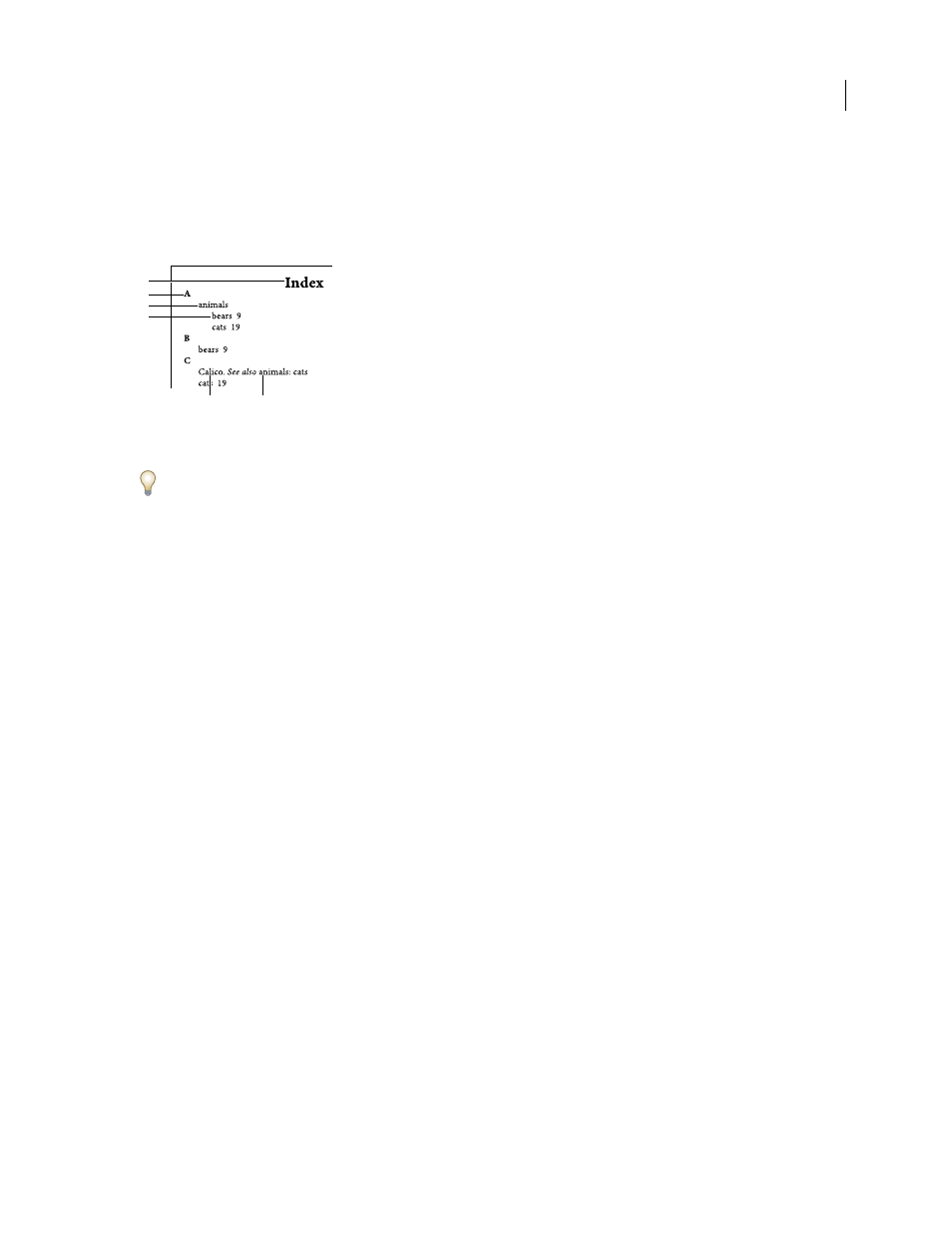Adobe InDesign CS3 User Manual
Page 301

INDESIGN CS3
User Guide
294
Index formatting options
When you click More Options in the Generate Index dialog box, formatting options appear that let you determine
the style and appearance of the generated index. InDesign includes a number of built-in paragraph and character
styles that you can select to format the generated index, or you can create and select your own styles. After you
generate the index, you can edit these styles in the Paragraph Styles and Character Styles panels.
Index with nested entries
A. Title B. Section heading C. Level 1 entry D. Level 2 subentry E. Topic F. Cross-reference
To replace the entry separators (such as the values for Following Topic or Between Entries), select the existing
separator and then type or choose a replacement character.
Nested or Run-in
Select Nested if you want the index formatted in the default style, with subentries nested under an
entry as separate indented paragraphs. Select Run-in if you want all levels of an entry to appear in a single paragraph.
The Between Entries option determines which character separates the entries.
Include Index Section Headings
Select this option to generate section headings consisting of alphabet characters (A,
B, C, and so on) representing the section that follows.
Include Empty Index Sections
Select this option to generate section headings for all letters of the alphabet, even if
the index lacks any first-level entries that begin with a particular letter.
Level Style
For each index level, choose a paragraph style to be applied to each level of index entries. You can edit
these styles in the Paragraph Styles panel after you generate the index.
Section Heading
Select the paragraph style that determines the appearance of the section headings (A, B, C, and so
on) in the generated index.
Page Number
Select the character style that determines the appearance of the page numbers in the generated index.
This setting does not affect index entries you formatted using the Number Style Override option.
Note: If you want the page numbers in the index to include prefixes, as in B-1 or II-1, see “Define section numbering”
on page 81.
Cross-reference
Select the character style that determines the appearance of cross-reference prefixes (such as See and
See also) in the generated index.
Cross-referenced Topic
Select the character style that determines the appearance of the topic being referred to (such
as beasts in See also beasts) in the generated index.
Following Topic
Type or select a special character to separate the entry from the page number (such as Animals 38).
The default is two spaces. Determine formatting for this character by editing the corresponding Level Style, or by
selecting another.
Between Page Numbers
Type or select a special character to separate one page number or range from another. The
default is a comma followed by an en space.
B
A
C
D
E
F
